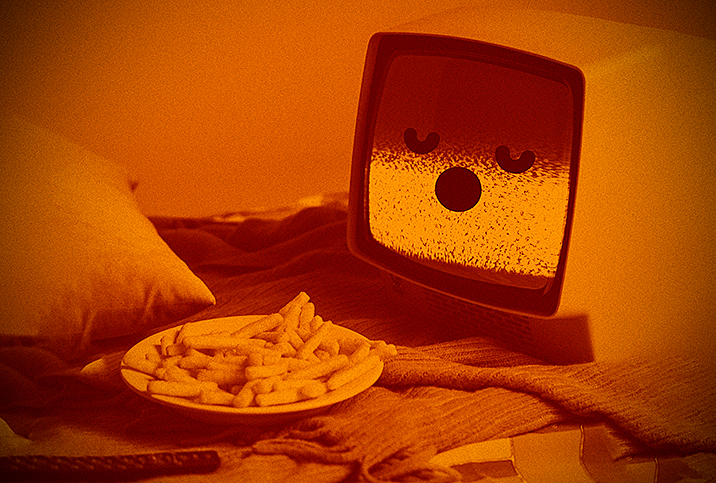6 Ways to Mitigate the Effects of Aging on Health

A long life is a blessing, but like every good thing, it comes at a price. In this case, the price is aging, which puts a lot of pressure on the body–leaving its mark on every part.
However, aging doesn't mean ill health is inevitable as you grow older. You can age and maintain a sound body and mind. How? You probably already know the answer: a healthy lifestyle.
The science behind aging
Do you remember the childhood riddle: "What walks on four legs in the morning, two legs in the afternoon, and three legs in the evening?" The answer is us—from babies crawling to seniors walking with a cane.
The body keeps changing from birth until death. As the cells in your body multiply, you grow older. Eventually you get to a point where your cells get tired and start waning, and that's aging in a nutshell.
Some effects of aging on health
Aging expresses itself in countless ways, both of body and mind, but here are some of the most common effects to expect:
- The bones (including the teeth) become more brittle, joints stiffen and mobility decreases.
- The blood vessels become stiffer and heart rate rises, increasing the risk of cardiovascular diseases such as hypertension and stroke.
- The hair begins to turn gray and fall out.
- The immune system becomes less efficient.
- Wrinkles appear on the skin.
- The brain's ability to retain information reduces. In some instances, the condition aggravates dementia.
- The eyes and ears grow weak. Common associated conditions include hearing loss and cataracts.
- Sexual performance declines as a result of reduced physical strength. Additionally, men may suffer erectile dysfunction (ED), while women experience reduced sexual pleasure.
These changes can be alarming, but they can also be managed—if you can accept you've entered the time of life when health becomes a priority.
How to mitigate the effects of aging
There was a time when men sailed across the world, searching for a mystical fountain of youth believed to "cure" aging. Of course, they never found it. We can't pause or reverse aging, but we can work around it.
1. Exercise
A 2012 study published in Comprehensive Physiology found people who exercised regularly were up to 36 percent less likely to die from any cause. Have you heard of the 82-year-old man who has the immune system of a 20-year-old? He owes it to constant exercising. If you exercise regularly, you're lowering your risk of cardiovascular disease, reducing stress and improving your physical stamina and cognitive ability.
2. Regular checkups
This might sound cliché but it's critical. Many health conditions don't show symptoms at early stages. But it doesn't mean you're in the clear. Best to always know your status before things get out of hand. If you make checkups your thing, you could keep heart attacks, strokes and the like at bay.
3. Personal hygiene
Bathe and wash your hands regularly to remove germs from the body. Handwashing alone lowers your risk of respiratory infections by 16 percent. Also, brush regularly with fluoridated toothpaste to maintain strong teeth.
4. Eat healthy always
Fruits and veggies are perhaps your best friends against aging. A strong immune system, strong bones, healthy skin...the list of benefits goes on and on. The same can't be said of fatty foods, though, so go easy on them. Try to stay within the World Health Organization's intake limits of the various food substances; it'll also help you maintain a healthy weight.
And remember to drink lots and lots of water. It helps a lot of matters as you age, including your eye and skin health.
5. Avoid smoking
Tobacco increases the risk of cardiovascular and respiratory diseases such as high blood pressure and lung cancer, respectively. Smoking accelerates the effects of aging on the body. Research shows it kills almost 70 percent of its users. In other words, chances are it'll catch up with you before aging does. No smoking, please.
6. Get more sleep
According to research published in a 2013 issue of Sleep, sleep deprivation can have massive effects on facial appearance, including hanging eyelids, swollen eyes and more wrinkles and fine lines. Beyond this, a lack of rest can contribute to a number of cosmetic problems, and can hinder overall brain function.
If you're over 50 and you're not already prioritizing your health in the ways described here, it's time to face reality. No more blithely consuming whatever you want or staying up into the wee hours. No more blowing off your workout or your next doctor's appointment.
Not to mention, some of these lifestyle changes can bring a surprising sense of peace and pleasure: taking a walk after dinner rather than sitting on the couch with the remote; exploring new foods and recipes; beating the tobacco habit once and for all, and feeling robust and full of energy. As they say, the journey is its own reward, and your golden years can be truly, radiantly golden with good health.


















